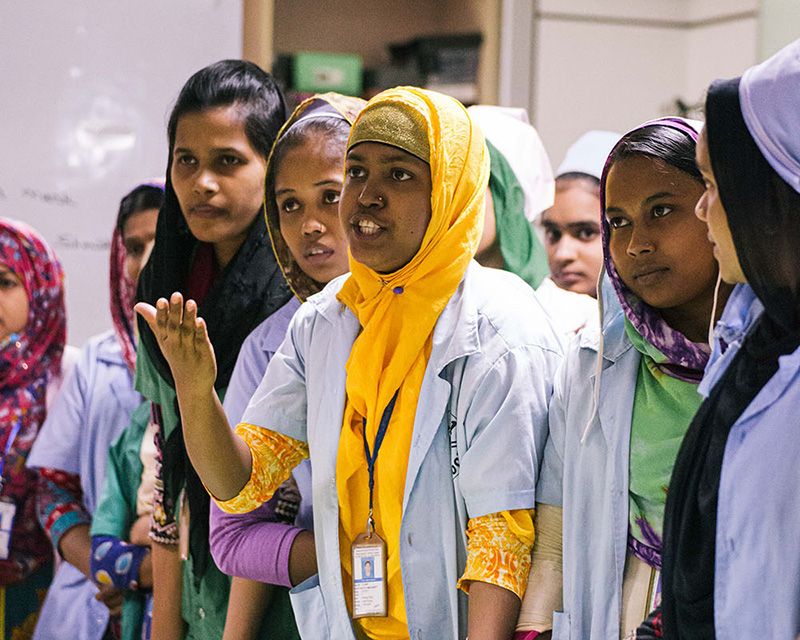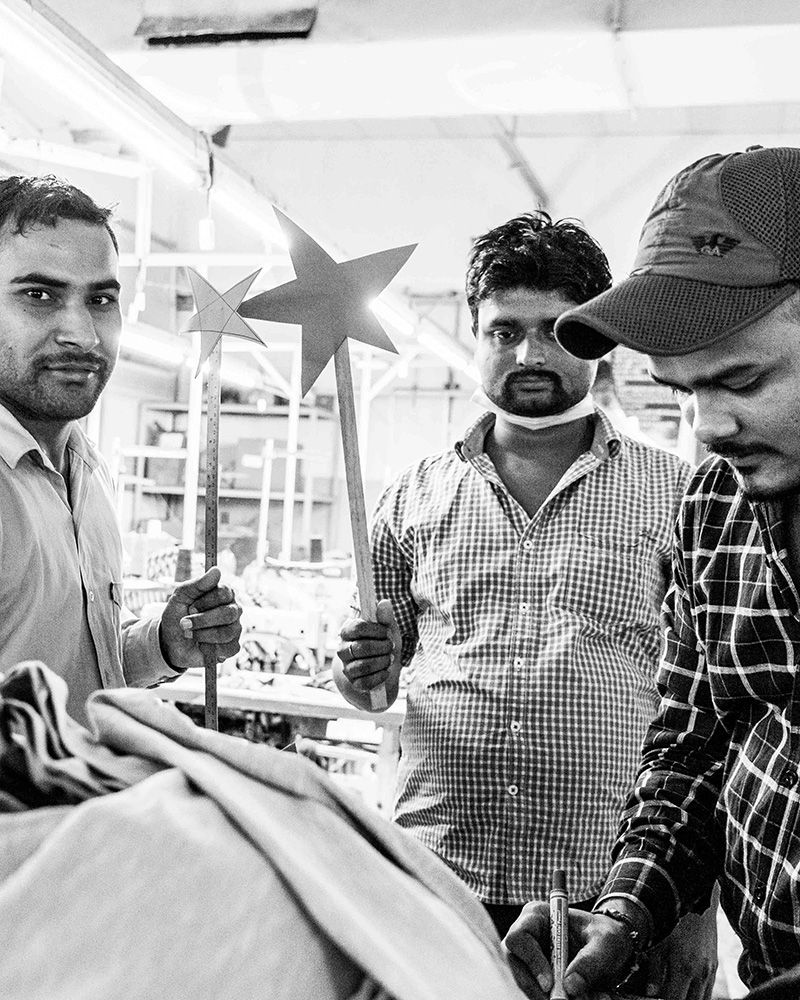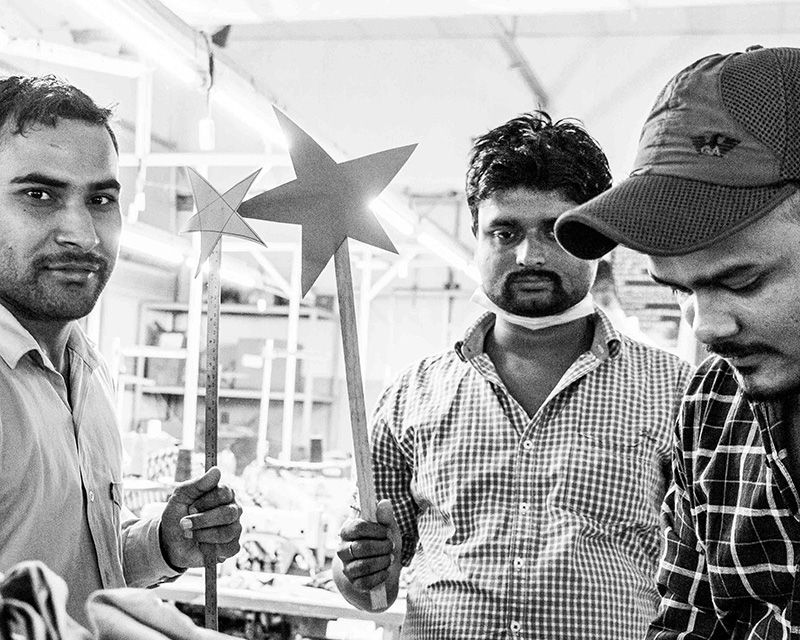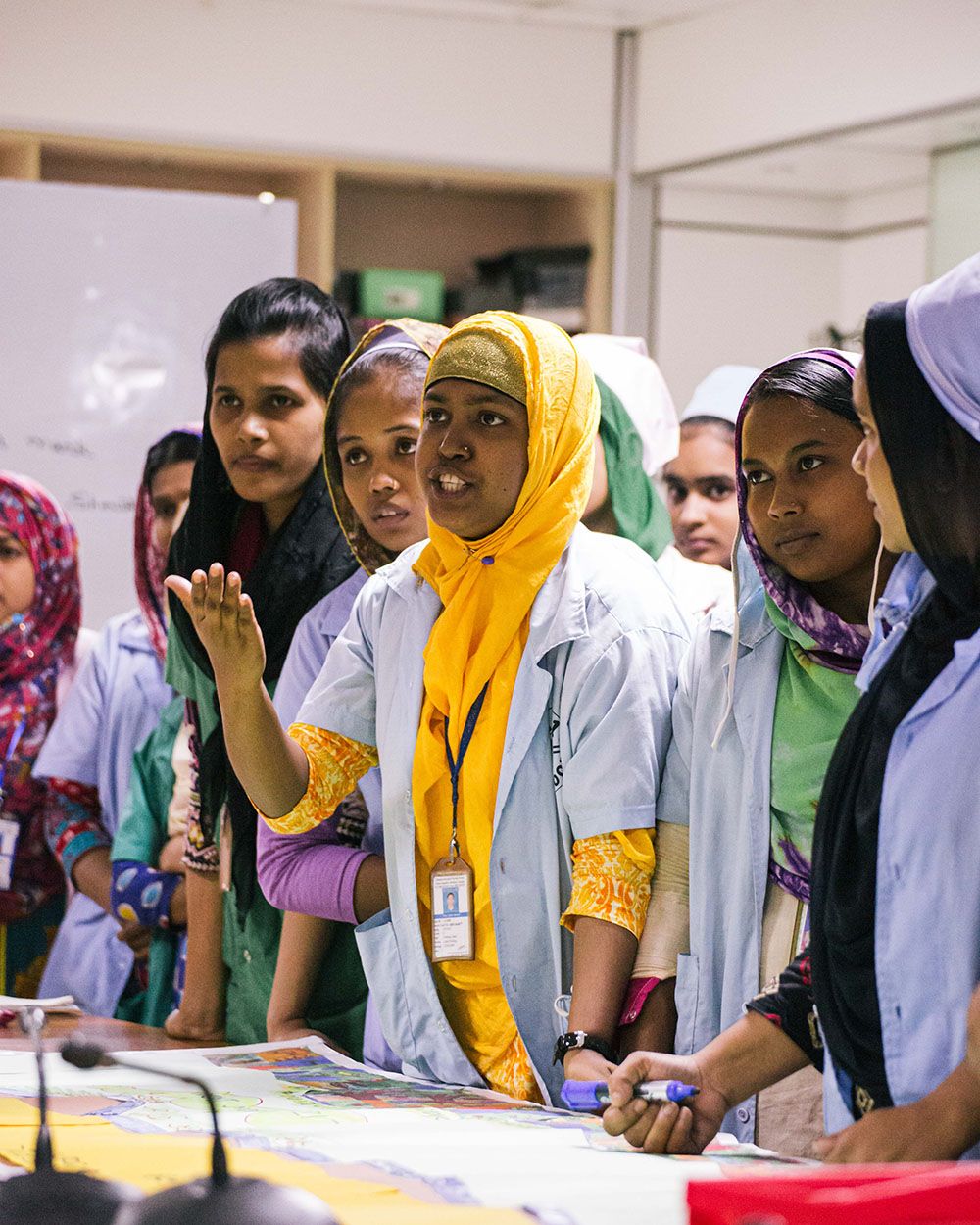HOW IT ALL BEGAN
Our founding story goes back to 2005. In that year, the Clean Clothes Campaign launched an image campaign against German company Tchibo because of bad working conditions at their suppliers in Bangladesh. These accusations were hard to swallow, since taking care of employees had always been a strong value at the family-owned company.
Visiting Bangladesh in early 2006 made clear that the scope of responsibility at Tchibo needed to be extended beyond their direct employees to consider the people along the supply chain as well. This mind shift had important implications. That same year Tchibo’s department for Corporate Responsibility was established.
Although auditing and compliance were the norm in those days, Tchibo decided to go beyond the call of duty. They developed a new method to work with stakeholders in their supply chain. The WE program, a dialogue-based program to improve working conditions and enhance human rights in factories, was launched in 2008. The German Development Cooperation (GIZ) partnered with Tchibo during this phase.












